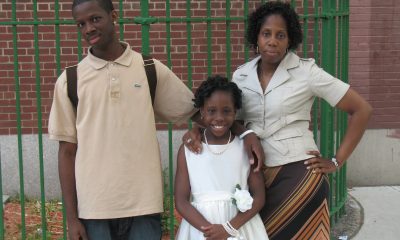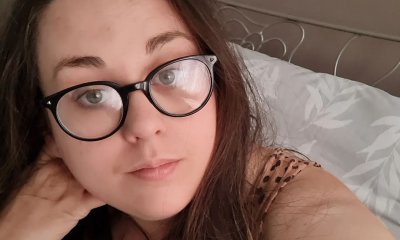by Lisa Cox
I’ve experienced grief several times in my 40 years. One of the most traumatic times happened just 24 years into my life and has left me with many visible and invisible scars.
At age 24, I had a brain haemorrhage while waiting for my flight at the airport one morning. I was taken to the hospital immediately. The first time I was in a coma for three weeks, on life support for two months and in hospital for over a year.
I’ve returned many times since for more operations and procedures, but I spent a lot of that first year grieving. My left leg, all of my right toes and nine fingertips were amputated. I also had heart surgery twice and a total hip replacement at age 27.
Very abruptly, my life changed, and I acquired multiple disabilities overnight. But it’s not my wheelchair, prosthetic limb or other physical limitations which cause me the most grief. It’s all of the invisible scars from my permanent brain injury. Today I’m over 25 percent blind, have epilepsy, peripheral neuropathy, chronic fatigue and often struggle with my memory and concentration. I’ve also been clinically diagnosed with PTSD and anxiety.
 I spent my 25th and 26th birthdays in the hospital surrounded by elderly patients. It certainly wasn’t as I had planned, although many people reading this will know that life rarely goes to plan.
I spent my 25th and 26th birthdays in the hospital surrounded by elderly patients. It certainly wasn’t as I had planned, although many people reading this will know that life rarely goes to plan.
I briefly grieved the loss of my body parts after they were amputated. But more than anything, I had to grieve the passing of my “old life.” I deeply missed things like spontaneity, independence and freedom.
I Grieved Parts of My Former Life Far More Than I Grieved My Former Body
Rather than grieving the loss of my leg, I grieved what that leg allowed me to do. Run through the park, climb mountains and spend time outdoors.
Suddenly, the simplest of tasks like feeding and dressing myself were all distant memories that I’d once taken for granted. But with the support of professionals and my immediate family, I worked through the grief and regained my independence.
Upon leaving the hospital for the first time, I was still grieving the loss of my freedom. Gone were the days when I could get up and go somewhere. Instead, I endured considerable planning just to travel a short distance.
Coming Out of the Fog
Despite the past and current challenges, I love my life as it is today and know that it’s only because of past traumas that I’ve had the chance to experience such happiness today.
I know it’s somewhat unusual for grief to be the catalyst for happiness. In my case, it was. Because of trauma, I was able to move back to the same town as my family (I’d previously been living interstate). I also met and married the world’s most wonderful man. I feel incredibly privileged to be doing the work I do today and advocating for the rights of other people with disabilities (approximately 20 percent of our population).
Like a lot of grief, there are no shortcuts or easy ways to process it. I did seek professional support with a psychologist when I needed it. I cannot recommend acceptance and commitment therapy (ACT) highly enough.
Time was the one thing that helped me enormously. As a relatively impatient person, taking my time to process this grief was not something I enjoyed. However, I knew it was important to feel the full range of horrible feelings when they came up, rather than push them down and ignore them or self-medicate with harmful substances.
 The other thing that helped a lot was frequently reminding myself that there is no one right way to grieve. Each of us is different and so too are our situations. That’s why, when talking about my experiences, I stress that they worked for me but might not be right for everyone.
The other thing that helped a lot was frequently reminding myself that there is no one right way to grieve. Each of us is different and so too are our situations. That’s why, when talking about my experiences, I stress that they worked for me but might not be right for everyone.
Seeing how others handle their grief can be very helpful, but it can also be dangerous. While some people seem to get over things quickly, others will remain stranded in the depths of despair for much longer.
Neither option is necessarily right or wrong. For a long time, I felt guilty that I was not grieving the right way.
Some of this comes back to social conditioning. The expectations we place on ourselves and that others place on us. We are expected to feel certain levels of grief for certain things while being expected to show little or no grief for other things.
What has surprised me about my grief over the years are the things that upset me quite a lot versus those that don’t bother me much at all. Sometimes it’s the very small, mundane or unremarkable events that leave me grief-stricken far more than other much larger life events which barely register on my radar.
Self-Pity Versus Self-Acceptance
I definitely had a grieving period and wallowed in self-pity, but I knew that staying there was no way for me to live. As horrible as this felt, I believe it was important for me to experience it to move forward and live my best life.
Nearly 17 years later, I am at a place of acceptance about my trauma. I now recognise that while I can’t change my past, I can actively shape my future.
For more information on Lisa Cox, check out her website.
Support us by driving awareness!
Subscribe to our YouTube channel at YouTube.com/GrapGrief.
Follow us on Facebook at Facebook.com/GrapGrief and on Instagram at Instagram.com/GrapGrief.







